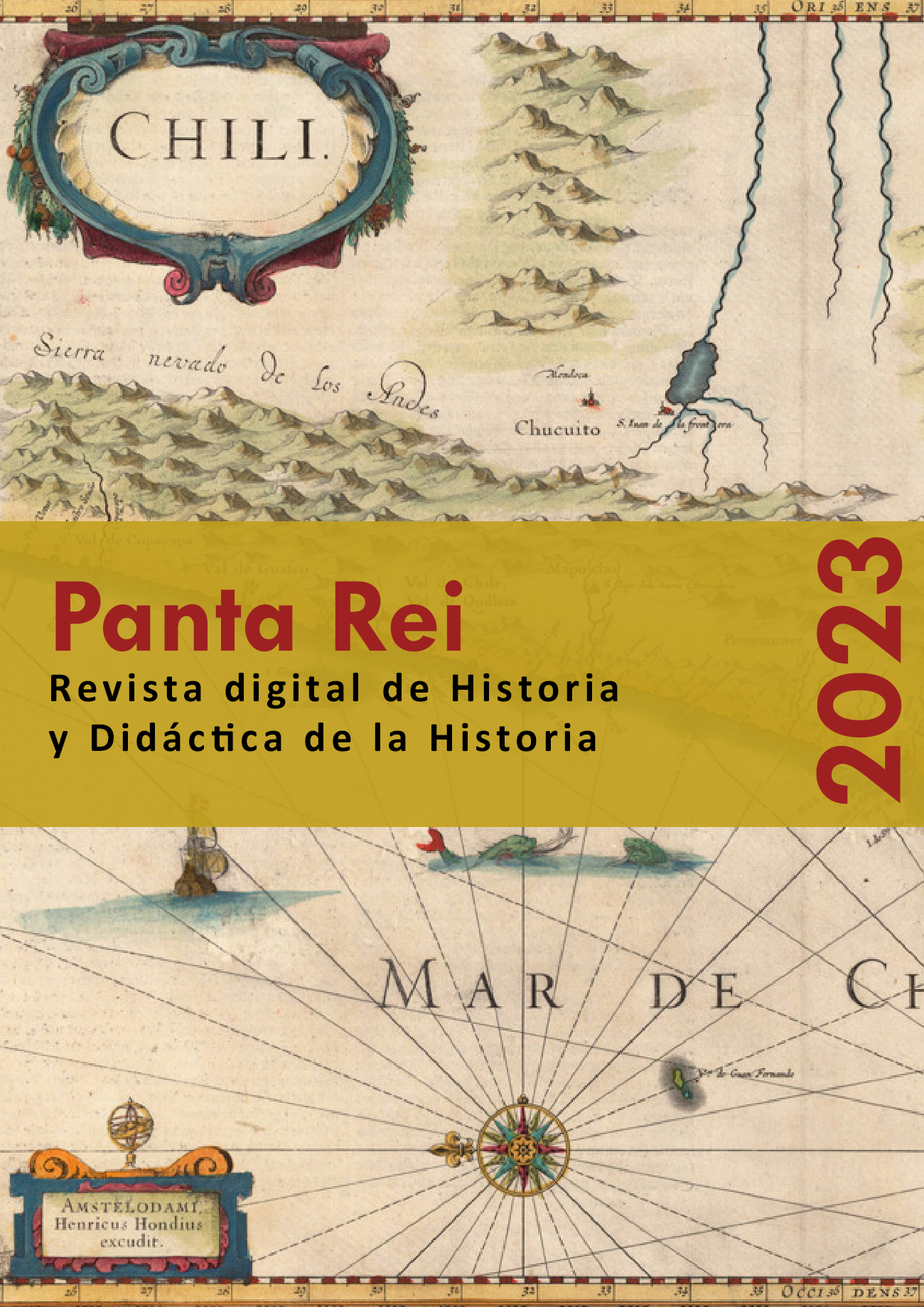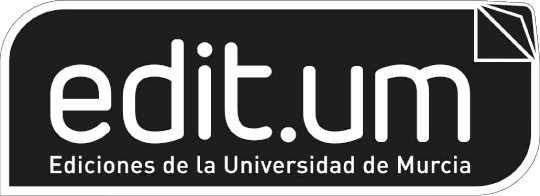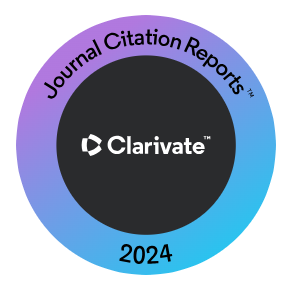Araucanía, a conflicting territory. Epistemic Beliefs of History Teachers in relation to the occupation process of the region
Supporting Agencies
- The research has been financed by the National Fund for Scientific and Technological Development (FODECYT) of the Government of Chile
Abstract
This study seeks to identify the influence of the epistemic beliefs of teachers in Araucanía (Chile) on the teaching of the military occupation of this region at the end of the 19th century. The research has used a qualitative methodology based on content analysis. Twenty-five history teachers from the region were interviewed. Results show that teachers manifest a criterialist vision of history and identify themselves with an interpretive teaching of this discipline. However, deficiencies are still found when they apply the historical method in the classroom. These limitations are associated with the restricted use of historical sources, the existence of a diverse and conflictive school context, and the influence of regional socio-political problems.
Downloads
-
Abstract1084
-
PDF (Español (España))651
-
EPUB (Español (España))164
References
Aguas, J. y Nahuelpan, H. (2019). Los límites del reconocimiento indígena en Chile neoliberal. La implementación del Convenio 169 de la OIT desde la perspectiva de dirigentes Mapuche Williche. Cultura-hombre-sociedad, 29(1), 108-130. http://dx.doi.org/10.7770/0719-2789.2018.cuhso.04.a01
Barton, K. C. y Levstik, L. S. (2004). Teaching history for the common good, Routledge.
Barton, K. y McCully, A. (2012). Trying to see things differently: Northern Ireland Students' Struggle to Understand Alternative Historical Perspectives. Theory y Research in Social Education, 40(4), 371-408. https://doi.org/10.1080/00933104.2012.710928
Bendixen, L. D. y Feucht, F. C. (eds) (2010). Personal epistemology in the classroom: theory, research and implications for practice. Cambridge University Press.
Bickmore, K. y Parker, C. (2014) Constructive Conflict Talk in Classrooms: Divergent Approaches to Addressing Divergent Perspectives. Theory y Research in Social Education, 42(3), 291-335. https://doi.org/10.1080/00933104.2014.901199
Braun, V., Clarke, V. y Gray, D. (2017). Collecting Textual, Media and Virtual Data in Qualitative Research. En V. Braun, V. Clarke y D. Gray (eds.), Collecting qualitative data: A practical guide to textual and virtual techniques (pp. 1-12). Cambridge University Press.
Conway, M. (2010). An exploration of sensitive issues in history teaching at secondary school level in England and Northern Ireland 1991-2001. (PhD), University of London. https://discovery.ucl.ac.uk/id/eprint/1566141/
Evans, R. W. (1990). Teacher Conceptions of History Revisited: Ideology, Curriculum, and Student Belief. Theory y Research in Social Education, 18(2), 101-138. https://doi.org/10.1080/00933104.1990.10505608
Flick, U. (2007). Introducción a la investigación cualitativa. Ediciones Morata.
Guardián-Fernández, A. (2007). El paradigma cualitativo en la investigación socio-educativa. Agencia Española de Cooperación Internacional (AECI). Disponible en: https://web.ua.es/en/ice/documentos/recursos/materiales/el-paradigma-cualitativo-en-la-investigacion-socio-educativa.pdf
Haydn, T. (2017). The impact of social media on History education: A view from England. Yesterday and Today, 17, 23-37. http://www.scielo.org.za/scielo.php?script=sci_arttext&pid=S2223-03862017000100003
Hofer, B. K., y Pintrich, P. R. (1997). The development of epistemological theories: Beliefs about knowledge and knowing and their relation to learning. Review of Educational Research, 67(1), 88-140. https://doi.org/10.3102/00346543067001088
Hofer, B. K., y Bendixen, L. D. (2012). Personal epistemology: Theory, research, and future directions. En K. R. Harris, S. Graham, T. Urdan, C. B. McCormick, G. M. Sinatra y J. Sweller (eds.), APA Educational Psychology Handbook, Vol. 1. Theories, constructs, and critical issues (pp. 227–256). American Psychological Association.
Kello K. y Wagner W. (2017) History Teaching as ‘Propaganda’? Teachers’ Communication Styles in Post-Transition Societies. En C. Psaltis, M. Carretero y S. Čehajić-Clancy (eds.), History Education and Conflict Transformation (pp. 201-230). Palgrave Macmillan. https://doi.org/10.1007/978-3-319-54681-0_8
Kuhn, D. y Weinstock, M. (2004). What is epistemological thinking and why does it matter? En B. Hofer, y P. Pintrich (eds.), Personal epistemology: The psychology of beliefs about knowledge and knowing (pp. 121-144). Routledge.
Legardez, A. y Simonneaux, L. (dirs.) (2011). Education au développement durable et autres questions socialement vives. Educagri.
Lévesque, S. y Clark, P. (2018). Historical Thinking: Definitions and Educational Applications. En A. Scott Metzger y L. McArthur Harris (eds), The Wiley International Handbook of History Teaching and Learning (pp.119-148). Wiley-Blackwell.
López-Facal, R. y Santidrián, V. (2011). Los conflictos sociales candentes en el aula. Iber. Didáctica de la geografía, historia y ciencias Sociales, 69, 8-20.
McMillan, J.H. y Schumacher, S. (2010). Investigación educativa. Una introducción conceptual. Pearson Education.
Maggioni, L., Alexander, P. A. y VanSledright, B. (2004). At the Crossroads: The Development of Epistemological Beliefs and Historical Thinking. European Journal of School Psychology, 2, 169-197.
Maggioni, L., VanSledright, B. y Alexander, P. (2009). Walking on the Borders: A Measure of Epistemic Cognition in History. The Journal of Experimental Education, 77(3), 187-213. https://doi.org/10.17398/2531-0968.01.86
Mansilla, J. y Beltrán, J. (2016). Racionalidad instrumental y prácticas de gestión en jefes técnicos de liceos de la Araucanía. Investigación Educativa, 34(1), 151-165. https://doi.org/10.6018/rie.34.1.218041
Mansilla, J., Llancavil, D., Mieres, M. y Montanares, E. (2016). Instalación de la escuela monocultural en la Araucanía, 1883-1910: dispositivos de poder y Sociedad Mapuche. Educação e Pesquisa, 42(1), 213-228. https://doi.org/10.1590/S1517-9702201603140562
Martínez, D. (2014). School culture and American Indian educational outcomes. Procedia-Social and Behavioral Sciences, 116, 199-205. https://doi.org/10.1016/j.sbspro.2014.01.194
McCully, A. y Reilly, J. (2017). History teaching to promote positive community relations in Northern Ireland: Tensions between pedagogy, social psychological theory and professional practice in two recent projects. En M. Charis (eds.), History education and conflict transformation (pp. 301-320). Palgrave Macmillan. https://doi.org/10.1007/978-3-319-54681-0_12
Miguel-Revilla, D., Sánchez-Agustí, M. y Carril, T. (2017). Accediendo al pasado: creencias epistémicas acerca de la Historia en futuros profesores de Ciencias Sociales. REIDICS. Revista de Investigación en Didáctica de las Ciencias Sociales, 1, 86-101. https://doi.org/10.17398/2531-0968.01.86
Montanares, E. y Llancavil-Llancavil, D. R. (2016). Uso de fuentes históricas en formación inicial de profesores. Magis, Revista Internacional de Investigación en Educación, 8(17), 85-98. https://doi.org/10.11144/Javeriana.m8-17.ufhf
Montanares, E. y Heeren, M. (2020). Los textos escolares y el tratamiento de la historia reciente: el caso de la Araucanía, Chile. Revista Espacios, 41(9), 16-28. https://revistaespacios.com/a20v41n09/20410916.htm
Monte-Sano, Ch. y Budano, Ch. (2013). Developing and Enacting Pedagogical Content Knowledge for Teaching History: An Exploration of Two Novice Teachers’ Growth Over Three Years. The Journal of the Learning Sciences, 22(2), 171-211. https://doi.org/10.1080/10508406.2012.742016
Muñoz-Justicia, J. (2005). Análisis cualitativo de datos textuales con ATLAS. ti 5. Universidad Autónoma de Barcelona.
Oteíza, T., y Pinuer, C. (2016). La construccion léxico-gramatical de significación histórica en manuales escolares chilenos. RLA Revista de Lingüistica Teórica y Aplicada, 54(1), 51-77. https://www.scielo.cl/pdf/rla/v54n1/art_04.pdf
Pérez-Serrano, G. (2001). Investigación cualitativa. Retos e interrogantes. Ediciones La Muralla.
Pinto, J. (2015). Conflictos étnicos, sociales y económicos. Araucanía, 1900-2014. Pehuén Editores.
Reisman, A. y Wineburg, S. (2008). Teaching the skill of contextualizing in history. Social Studies, 99(5), 202-207. https://doi.org/10.3200/TSSS.99.5.202-207
Ruiz-Olabuénaga, J. I. (2012). Metodología de la investigación cualitativa. Universidad de Deusto.
Sáez-Rosenkranz, I. (2016). Análisis de actividades en libro de texto de Historia, Geografía y Ciencias Sociales de educación básica en Chile. Tesis Doctoral. Universidad de Barcelona. http://hdl.handle.net/10803/393962
Saiz-Serrano, J. y Gómez-Carrasco, C. (2016). Investigar el pensamiento histórico y narrativo en la formación del profesorado: fundamentos teóricos y metodológicos. Revista Electrónica Interuniversitaria de Formación del Profesorado, 19(1), 175-190. https://www.redalyc.org/pdf/2170/217043419014.pdf
Saiz-Serrano, J. y López-Facal, R. (2015). Competencias y narrativas históricas: el pensamiento histórico de estudiantes y futuros profesores españoles de educación secundaria. Revista de Estudios Sociales, 52, 87-101. https://doi.org/10.7440/res52.2015.06
Sanhueza, A., Carriaga, M., Cuevas, L. y González, U. (2018). Memorias del despojo mapuche y su implementación en ámbitos educativos. Experiencia en la Escuela Trafún Chico, comuna de Panguipulli. En G. Pozo (ed.). Expoliación y violación de los derechos humanos en territorio mapuche. Cartas del padre Sigifredo, Misión de Panguipulli, año 1905 (pp. 477-498). Editorial Ocho Libros.
Sanhueza, A., Pagès, J. y Gonzalez-Monfort, N. (2019). Enseñar historia y ciencias sociales para la justicia social del Pueblo Mapuche: la memoria social sobre el malon y el awkan en tiempos de la Ocupación de la Araucanía. Perspectiva Educacional, 58(2), 3-22. https://doi.org/10.4151/07189729-vol.58-iss.2-art.909
Sanhueza, A., Pàges, J., González-Monfort, N. y González-Valencia, G. (2022). La invisibilidad social del pueblo mapuche en la enseñanza de la historia en Chile. Educaçao e Pesquisa, 48, 1-21. https://doi.org/10.1590/S1678-4634202248243440esp
Savenije, G. M. y Goldberg, T. (2019) Silences in a climate of voicing: teachers’ perceptions of societal and self-silencing regarding sensitive historical issues. Pedagogy, Culture y Society, 27(1), 39-64. https://doi.org/10.1080/14681366.2019.1566162
Segura, L. y Núñez, L. (2011). El pueblo Mapuche en el Siglo XXI: Desafíos del currículum Nacional. Tesis de Magíster en Enseñanza. Universidad del Bio-Bio. http://repobib.ubiobio.cl/jspui/bitstream/123456789/2142/1/Segura_Inostroza_Lorena.pdf
Seixas, P. y Morton, T. (2014). The big six: Historical thinking concepts. Nelson Education.
Sheppard, M. y Levy, S. A. (2019). Emotions and teacher decision-making: An analysis of social studies teachers’ perspectives. Teaching and Teacher Education, 77, 193-203. https://doi.org/10.1016/j.tate.2018.09.010
Stradling, R. (2003). Multiperspectivity in history teaching: A guide for teachers. Council of Europe.
Strauss, A. y Corbin, J. (2002). Bases de la investigación cualitativa. Técnicas y procedimientos para desarrollar la teoría fundamentada. Editorial Universidad de Antioquia.
Toledo, M. I., Magendzo, A., Gutiérrez, V. e Iglesias, R. (2015). Enseñanza de ‘temas controversiales’ en la asignatura de historia y ciencias sociales desde la perspectiva de los profesores. Estudios Pedagógicos, 41(1), 275-292. https://doi.org/10.4067/S0718-07052015000100016
Turra, O. (2017). Historia escolar en contexto interétnico e intercultural mapuche. Educação y Sociedade, 38(140), 791-808. https://www.scielo.br/j/es/a/ZZd73QYKTSWBdVCd8pQ9c5D/?format=pdf&lang=es
Turra, O., Ferrada, D. y Villena, A. (2013). La especificidad del contexto indígena como requerimiento para la formación inicial del profesorado. Estudios Pedagógicos, 39(2), 329-339. https://doi.org/10.4067/S0718-07052013000200020
Van Drie, J. y Van Boxtel, C. (2008). Historical Reasoning: Towards a Framework for Analyzing Students’ Reasoning About the Past. Educational Psychology Review, 20, 87-110. https://doi.org/10.1007/s10648-007-9056-1
VanSledright, B. (2002). Confronting History’s Interpretive Paradox While Teaching Fifth Graders to Investigate the Past. American Educational Research Journal, 39(4), 1089–1115. https://doi.org/10.3102/000283120390041089
VanSledright, B. (2014). Assessing Historical Thinking and Understanding. Innovation Design for New Standards. Routledge.
VanSledright, B. y Reddy, K. (2014). Crenças epistémicas en mudança? Um estudo investigativo do conhecimento entre futuros profesores de história. Tempo & Argumento, 6(11), 69-112. https://doi.org/10.5965/2175180306112014069
Villalón, G. y Pagès, J. (2015). La representación de los y las indígenas en la enseñanza de la historia en la educación básica chilena. El caso de los textos de estudio de historia de Chile. Diálogos Andinos, 1(47), 27-36. https://doi.org/10.4067/S0719-26812015000200004
Wansink, B., Zuiker, I., Wubbels, T., Kamman, M., y Akkerman, S. (2017). 'If you had told me before that these students were Russians, I would not have believed it': an international project about the (New) 'Cold War'. Teaching History, 166, 30-34.
Wansink, B., Akkerman, S., Vermunt, J., Haenen, J., y Wubbels, T. (2017). Epistemological tensions in prospective Dutch history teachers׳ beliefs about the objectives of secondary education. The Journal of Social Studies Research, 41(1), 11-24. https://doi.org/10.1016/j.jssr.2015.10.003
Wansink, B., Akkerman, S., Zuiker, I. y Wubbels, T. (2018) Where Does Teaching Multiperspectivity in History Education Begin and End? An Analysis of the Uses of Temporality. Theory y Research in Social Education, 46(4), 495-527, DOI: https://doi.org/10.1080/00933104.2018.1480439
Wineburg, S. (2001). Historical Thinking and Other Unnatural Acts: Charting the Future of Teaching the Past. Temple University Press.
Wineburg, S. (2018). Why learn history (When it’s already on your phone). University of Chicago Press.
Wineburg, S., Mosborg, S. y Porat, D. (2001), What can “Forrest Gump” tell us about students’ historical understanding? Social Education, 65(1), 55–58.
Zembylas, M. y Kambani, F. (2012) The Teaching of Controversial Issues During Elementary-Level History Instruction: Greek-Cypriot Teachers' Perceptions and Emotions. Theory y Research in Social Education, 40(2), 107-133. https://doi.org/10.1080/00933104.2012.670591
Copyright (c) 2023 Elizabeth Montanares Vargas, Carlos Muñoz Labraña, María Sánchez-Agustí

This work is licensed under a Creative Commons Attribution-ShareAlike 4.0 International License.
All the contents published in this journal are subject to an Attribution-ShareAlike 4.0 International (CC BY-SA 4.0) Creative Commons License. You are free to: Share — copy and redistribute the material in any medium or format, Adapt — remix, transform, and build upon the material, for any purpose, even commercially. Under the following terms:
Attribution — You must give appropriate credit, provide a link to the license, and indicate if changes were made. You may do so in any reasonable manner, but not in any way that suggests the licensor endorses you or your use.
ShareAlike — If you remix, transform, or build upon the material, you must distribute your contributions under the same license as the original.
Full text of the license is available in: Creative Commons License 












